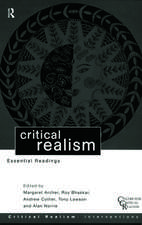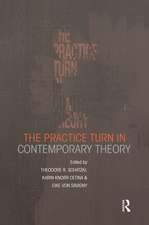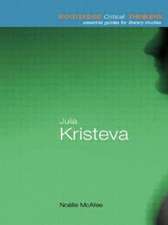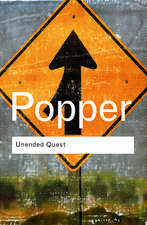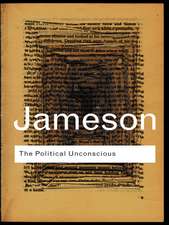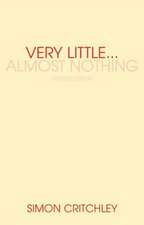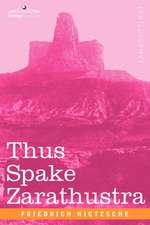Nietzsche's Therapeutic Teaching: For Individuals and Culture: Bloomsbury Studies in Continental Philosophy
Editat de Professor Horst Hutter, Eli Friedlanden Limba Engleză Paperback – 25 iun 2015
| Toate formatele și edițiile | Preț | Express |
|---|---|---|
| Paperback (1) | 257.68 lei 6-8 săpt. | |
| Bloomsbury Publishing – 25 iun 2015 | 257.68 lei 6-8 săpt. | |
| Hardback (1) | 891.51 lei 6-8 săpt. | |
| Bloomsbury Publishing – 11 sep 2013 | 891.51 lei 6-8 săpt. |
Din seria Bloomsbury Studies in Continental Philosophy
- 14%
 Preț: 179.26 lei
Preț: 179.26 lei - 23%
 Preț: 179.10 lei
Preț: 179.10 lei - 13%
 Preț: 238.22 lei
Preț: 238.22 lei - 31%
 Preț: 772.98 lei
Preț: 772.98 lei - 30%
 Preț: 773.39 lei
Preț: 773.39 lei - 14%
 Preț: 888.65 lei
Preț: 888.65 lei - 22%
 Preț: 772.98 lei
Preț: 772.98 lei - 13%
 Preț: 258.33 lei
Preț: 258.33 lei - 23%
 Preț: 256.02 lei
Preț: 256.02 lei - 30%
 Preț: 715.00 lei
Preț: 715.00 lei -
 Preț: 255.66 lei
Preț: 255.66 lei - 22%
 Preț: 773.06 lei
Preț: 773.06 lei - 14%
 Preț: 891.10 lei
Preț: 891.10 lei - 30%
 Preț: 774.20 lei
Preț: 774.20 lei - 13%
 Preț: 257.97 lei
Preț: 257.97 lei - 30%
 Preț: 715.00 lei
Preț: 715.00 lei - 22%
 Preț: 774.62 lei
Preț: 774.62 lei - 13%
 Preț: 256.20 lei
Preț: 256.20 lei -
 Preț: 256.59 lei
Preț: 256.59 lei - 22%
 Preț: 257.50 lei
Preț: 257.50 lei - 13%
 Preț: 257.03 lei
Preț: 257.03 lei - 13%
 Preț: 258.15 lei
Preț: 258.15 lei - 30%
 Preț: 715.19 lei
Preț: 715.19 lei - 13%
 Preț: 256.49 lei
Preț: 256.49 lei - 22%
 Preț: 891.10 lei
Preț: 891.10 lei -
 Preț: 255.94 lei
Preț: 255.94 lei - 13%
 Preț: 236.45 lei
Preț: 236.45 lei - 30%
 Preț: 714.92 lei
Preț: 714.92 lei - 30%
 Preț: 773.81 lei
Preț: 773.81 lei - 22%
 Preț: 772.98 lei
Preț: 772.98 lei - 22%
 Preț: 889.08 lei
Preț: 889.08 lei - 30%
 Preț: 714.61 lei
Preț: 714.61 lei -
 Preț: 256.59 lei
Preț: 256.59 lei - 14%
 Preț: 772.98 lei
Preț: 772.98 lei - 22%
 Preț: 257.68 lei
Preț: 257.68 lei - 22%
 Preț: 891.75 lei
Preț: 891.75 lei - 30%
 Preț: 773.81 lei
Preț: 773.81 lei
Preț: 257.68 lei
Preț vechi: 295.49 lei
-13% Nou
Puncte Express: 387
Preț estimativ în valută:
49.31€ • 52.73$ • 41.11£
49.31€ • 52.73$ • 41.11£
Carte tipărită la comandă
Livrare economică 17 aprilie-01 mai
Preluare comenzi: 021 569.72.76
Specificații
ISBN-13: 9781474228862
ISBN-10: 1474228860
Pagini: 264
Dimensiuni: 156 x 234 x 14 mm
Greutate: 0.37 kg
Editura: Bloomsbury Publishing
Colecția Bloomsbury Academic
Seria Bloomsbury Studies in Continental Philosophy
Locul publicării:London, United Kingdom
ISBN-10: 1474228860
Pagini: 264
Dimensiuni: 156 x 234 x 14 mm
Greutate: 0.37 kg
Editura: Bloomsbury Publishing
Colecția Bloomsbury Academic
Seria Bloomsbury Studies in Continental Philosophy
Locul publicării:London, United Kingdom
Caracteristici
International team of contributors including Keith Ansell Pearson, Babette Babich, Graham Parkes, David Allison.
Notă biografică
Horst Hutter is Professor of Political Science at Concordia University, Canada.Eli Friedland is a doctoral student in Political Science at Concordia University, Canada.
Cuprins
Note on the ContributorsAcknowledgements1. Introduction Horst Hutter and Eli Friedland2. The Nietzsche Cure: New Kinds of 'Gymnastics of Willing' Horst Hutter3. Vocation as Therapy: Nietzsche and the Conflict Between Profession and Calling in Academia Martine Béland4. Nietzsche's Ethics of Reading: Education in a Postmodern World Nathalie Lachance5. Who Educates the Educators? Nietzsche's Philosophical Therapy in the Age of Nihilism José Daniel Parra6. Nietzsche's Cruel Offerings: Friendship, Solitude and the Bestowing Virtue in Thus Spoke Zarathustra Willow Verkerk7. The Advantages and Disadvantages of Nietzsche's Philosophy for Life Bela Egyed8. Nietzsche's Agonistic Rhetoric and its Therapeutic Affects Yunus Tuncel9. True to the Earth: Nietzsche's Epicurean Care of Self and World Keith Ansell-Pearson10. Nietzsche's View from Above Michael Ure11. Zarathustra's Stillness: Dreaming and the Art of Incubation Rainer Hanshe12. Nietzsche's Zarathustra, Nietzsche's Empedocles: The Time of Kings Babette Babich13. Nietzsche's Care for Stone: The Dead, Dance, and Flying Graham Parkes14. Nietzsche on Consciousness and Language Larry Hatab 15. Nietzsche's Experimental Ontology: Political Physiology in the Age of Nihilism Nandita Biswas-Mellamphy16. 'Let that be my love': Fate, Medio-Passivity and Redemption in Nietzsche's Thought Béatrice Han-Pile17. "Not to Destroy, but to Fulfill" Eli FriedlandIndex
Recenzii
Nietzsche's Therapeutic Teaching brings needed attention to the centrality of the classical theme of philosophy as medicine for the soul to Nietzsche's project and its implications for Nietzsche's philosophical practice. Its rich diversity of essays (by established and younger scholars) makes this a welcome contribution to, and provocative re-orientation of, contemporary Nietzsche studies.


